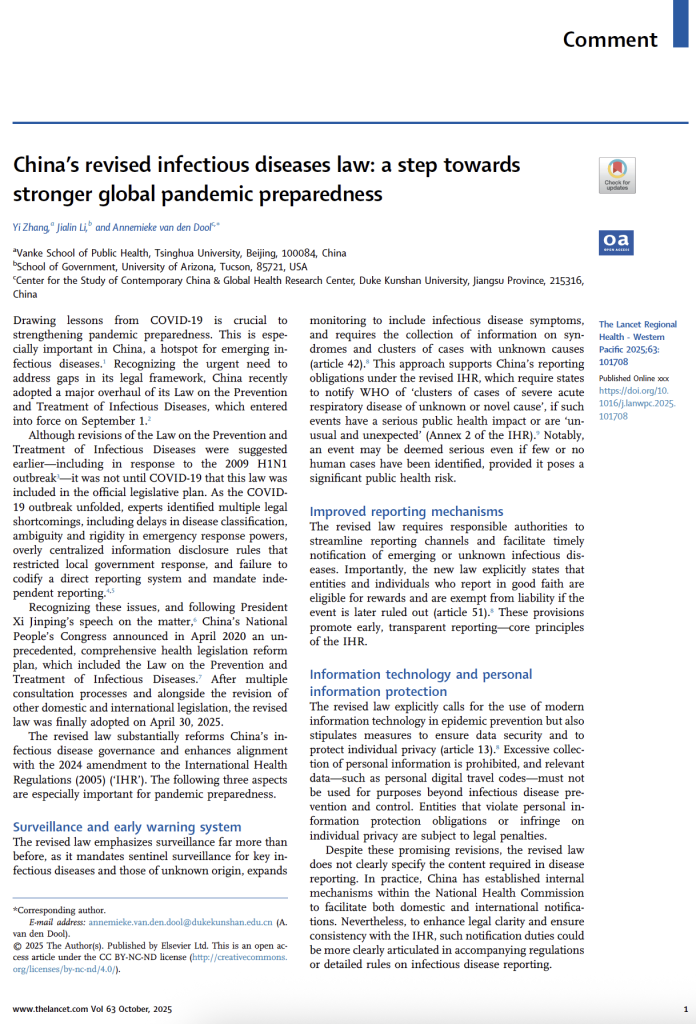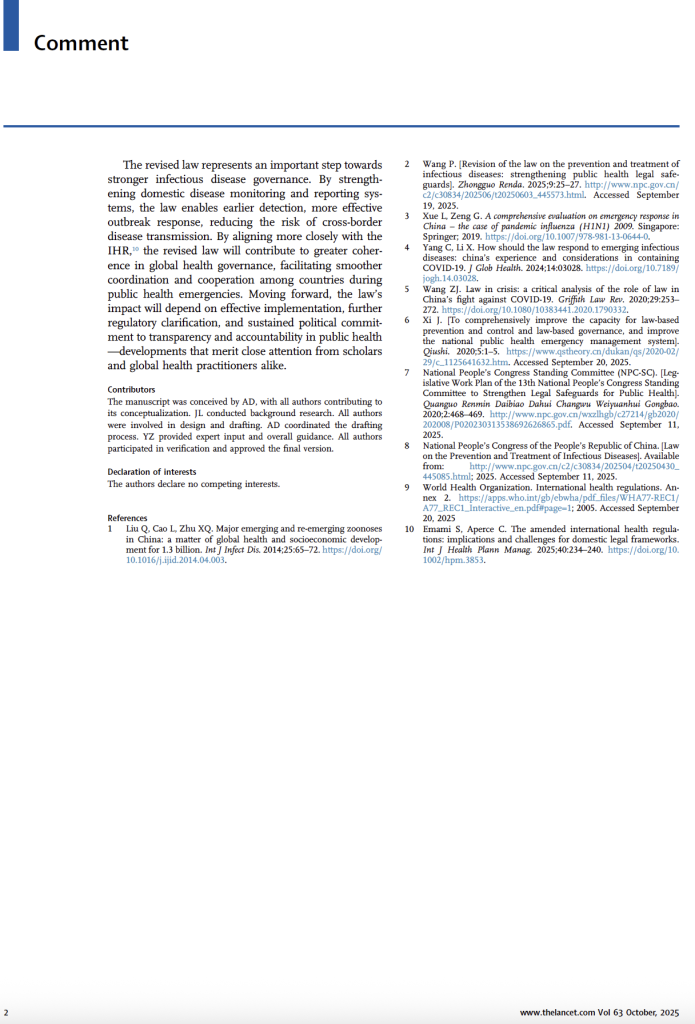Pandemic Preparedness
Epidemic outbreaks can cause enormous health, economic, and political disruption. Ideally, we would prevent such crises by learning from past outbreaks and translating those lessons into stronger policies and institutions. This is especially important in China, as the country is considered a hotspot for zoonotic diseases due to its large and dense population, and close interactions between people, birds, and pigs.
To better understand how China responds to epidemic outbreaks, I have conducted several studies that analyze how crises influence policy, what kinds of reforms follow, and how lessons from past emergencies can—or sometimes cannot—be institutionalized. In doing so, I connect these developments to broader questions in policy process research, such as how problems gain attention, how political leaders frame crises, and how policy change unfolds over time.
I first started to work on this topic during my time as visiting scholar at East Asian Legal Studies at Harvard Law School in 2017, which coincided with a US CDC travel warning to China due to H7N9 avian influenza. See my blog post for the Harvard Fairbank Center for Chinese Studies here.
In subsequent research, I analyzed live poultry sales in Chinese food markets, a key issue in epidemic prevention. Drawing on Chinese policy documents, news articles, World Health Organization data, and secondary literature, I showed that, as of 2023, a permanent nationwide ban was not adopted, despite the public health risks and strong political support. The main reasons for this are that such a ban is technically difficult, financially costly, and inconsistent with existing norms and values. This project has been published in the Policy Studies Journal (2023), click here to download the full-text pdf. This article has been awarded the 2024 American Political Science Association STEP Evan Ringquist Best Paper Award, which recognizes “the best paper published in a relevant journal in the last two years.” I talk about the project in this interview with the DKU Center for the Study of Contemporary China.
In follow-up studies, I have analyzed China’s Infectious Diseases Prevention and Treatment Law, which has led to several publications. This book chapter shows how the 2002-2003 SARS outbreak contributed to the law’s 2004 revision. This article shows how post-SARS policy reform was framed by policymakers in China. More recently, I wrote a comment article about the 2025 revision of this law following the COVID-19 pandemic, see here and below.


My research on pandemic preparedness has been supported by a China-U.S. Scholars Program Travel Grant generously provided by Carnegie Corporation of New York, Harvard-Yenching Institute, Henry Luce Foundation and Rockefeller Brothers Fund.
Click here to read about my other research projects on policy processes in China.
